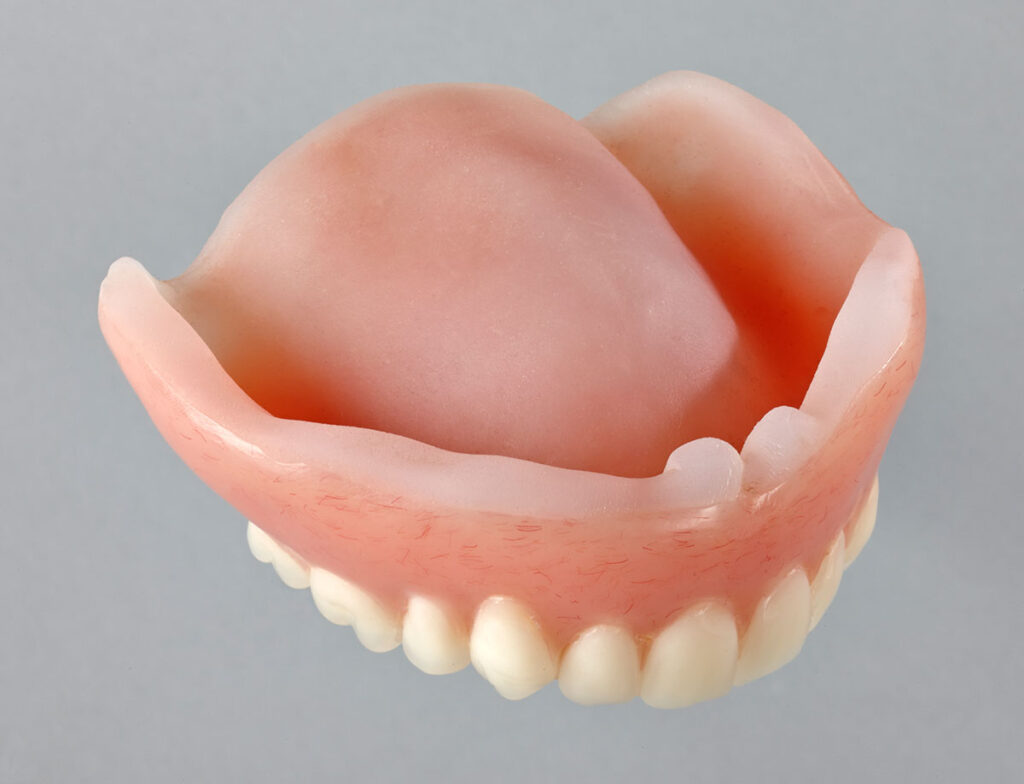Do you have sensitive gums that make wearing dentures uncomfortable? If so, you’re not alone! Due to gum sensitivity, many people experience discomfort and pain when wearing traditional dentures. Fortunately, there is a solution: soft liners. These innovative products can help alleviate the discomfort associated with denture wear by providing a soft cushion between your gums and dentures. In this blog post, we’ll explore how soft liners work, how to apply them properly, as well as additional tips for care and maintenance. Whether you’re new to wearing dentures or looking for ways to improve your existing ones’ comfort level, keep reading!
How Soft Liners Work
Soft liners are a type of cushioning material that is placed inside dentures to provide comfort and stability for patients with sensitive gums. They work by creating a barrier between the hard acrylic denture base and the soft tissues in the mouth, reducing irritation and discomfort while wearing dentures.
When inserted into dentures, soft liners conform to the contours of the mouth, providing a custom fit that helps prevent slippage or movement. This can be especially helpful for patients whose gum tissue has receded or who have experienced bone loss over time.
Some soft liners also contain antimicrobial agents that help reduce bacteria build-up within the liner itself, promoting healthier oral hygiene for those who wear them. Soft liners are typically made from medical-grade silicone materials that are safe and durable enough to last several months before requiring replacement.
Soft liners offer an effective solution for individuals with sensitive gums or other oral health concerns that make traditional hard dentures uncomfortable to wear. Their ability to cushion and protect delicate gum tissue makes them an excellent option for anyone seeking greater comfort while wearing their prosthetic teeth.
How to Apply Soft Liners
Applying soft liners is a simple process that can be done easily at home. Before you start, make sure your dentures are clean and dry. Here’s how to apply soft liners:
1. Prepare The Liner:
Soft liners come in pre-formed shapes or as a liquid that you can mold to fit your denture. Follow the manufacturer’s instructions for preparing the liner.
2. Apply Adhesive:
Apply a small amount of denture adhesive to the surface of your denture where you will place the soft liner.
3. Place The Liner:
Carefully position the prepared soft liner onto your denture and press down firmly.
4. Adjust If Necessary:
If there are any air bubbles or areas where it doesn’t fit properly, use scissors or nail clippers to trim away excess material until it fits snugly against your gums.
5. Let It Sit:
Allow the soft liner to set for several minutes before placing back into your mouth so it adheres properly.
Remember, always follow the manufacturer’s instructions when applying soft liners and never hesitate to contact your dentist if you have any questions or concerns about using them on a regular basis!
Additional Tips For Care and Maintenance
Taking care of your soft liners is essential in ensuring their longevity, effectiveness, and overall quality. Here are some additional tips for care and maintenance that you can follow:
- Firstly, always clean your dentures thoroughly before applying the soft liner to ensure that there aren’t any food particles or bacteria present. This will prevent contamination and infection.
- Secondly, make sure to use a soft-bristled toothbrush when brushing your dentures to avoid damaging the soft liner material. Avoid using abrasive toothpaste or harsh chemicals as well.
- Thirdly, keep your mouth clean by rinsing with an antiseptic mouthwash daily. This will help eliminate any bacteria that may cause gum irritation or infection.
- Fourthly, store your dentures properly by keeping them in a moist environment such as water or a dental soaking solution overnight. This will prevent the material from drying out and becoming brittle over time.
- Lastly, have regular check-ups with your dentist to ensure that everything is in good condition and address any issues before they become more serious problems.
Taking care of your soft liners requires proper cleaning habits, gentle brushing techniques, and regular oral hygiene practices such as rinsing with an antiseptic mouthwash daily and storing them adequately at night. Following these simple steps regularly along with visiting a professional periodically for inspection would guarantee long-lasting results!
The Bottom Line
Soft liners can be an excellent option for patients with sensitive gums. They provide additional cushioning and comfort to denture wearers, which can make a big difference in their overall oral health and well-being. By following the tips outlined in this article on how soft liners work, how to apply them properly, and how to care for them over time, you can ensure that you get the most out of your soft liner experience.
If you are experiencing discomfort or irritation from your dentures due to sensitive gums, talk to our Burbank dentist about whether soft liners might be right for you. With proper application and maintenance, they may help alleviate some of your symptoms and allow you to enjoy eating and speaking more comfortably than ever before.


